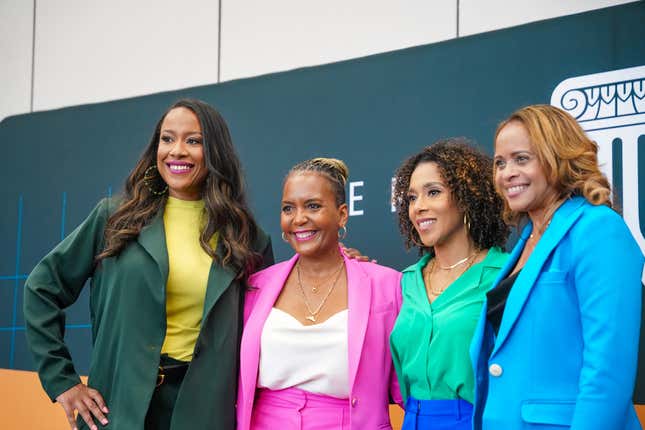
Temple University’s acting president JoAnne A. Epps suddenly collapsed on stage during a memorial service last week. After an officer carried out her limp body in front of the crowd of students and attendees, she was taken to the university hospital where she was pronounced dead, according to AP News.
Despite the traumatizing scene, the program continued following a short prayer, according to an account from Crystal A. deGregory. Seemingly, any Black colleagues or associates of Epps had to simply move on with the itinerary, sitting with the anxiety of not knowing the president’s condition. Cancelling the event to allow space to grieve didn’t appear to be an option either.
One can only imagine the message this sent to Black women on campus, students and staff, watching the show go on as if the sudden death of a Black woman was worth putting on the shelf until the next day. After Breonna Taylor was killed in a botched raid three years ago, Black women still had to go into work or to class with the trauma of knowing themselves, their sisters or girlfriends could have met the same fate.
What do Black women do when we’re robbed of the grace we need to unpack what they’re experiencing? This is one of the plights of Black women discussed at The Root Institute this month.
“What we think we’re dealing with is current pain but it’s beyond that. We’re still rooted and grounded in past pain plus current pain,” said Melonie Parker, Global Chief Diversity, Equity, and Inclusion Officer at Google. “When we see each other, being Black women, [we must] be able to recognize when people are experiencing trauma. How do we surround and support [each other] with grace, with understanding?”
Ultimately, we as Black women are our only support whether on a college campus or in an office space. However, even that gets complicated because sometimes the support we desire from fellow Black women isn’t always reciprocated.
As stated by Keisha Lance Bottoms, former Atlanta mayor and a Root Institute panelist could attest, Black women are being targeted from the political front to the boardrooms. And unfortunately, as another esteemed panelist added, sometimes the people tearing down Black successful women look just like them.
“It can be very cut-throat in our community because you don’t believe there’s room for all of us,” said Orlena Nwokah Blanchard, co-creator of the CROWN Act Movement. “It’s challenging in a sisterhood of Black women where we should be lifting each other up. I’ve experienced being disappointed, challenged and mistreated more by Black women in the workplace than any other person.”
Lance Bottoms followed Ms. Blanchard’s comments by tying the issue back to the trauma we, Black women, experience. She said the deep-seated trauma that goes ignored can often be projected onto others intentionally or unintentionally. The systems in place also offer no room or support for our healing.
With the amount of pressure Black women deal with due to systemic racism and societal demands, we owe it to ourselves to cater to our physical, mental and emotional health. That way, we can take better care of each other.

